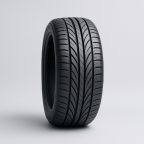
6 Checks to Carry Out Before You Buy a Used Car
You’ve finally found the car you have been looking for, but you aren’t sure if it is the best one for you. There are so many pieces of information to collect, so many different factors that could make or break your decision. You want something reliable and affordable, but what does that mean? How do you know if a used car is good or not?
However, ensure you take advantage and get a free MOT history check before you consider purchasing a second-hand car.
Don't worry! We've got your back with these checks to carry out before you buy a used car. From checking the safety precautions to looking after your warranty and asking the right questions, these tips will help you find peace of mind.
So, get out that pen and paper and get ready to take notes. Let's get started.
1. Safety precautions
You want to know that the car you are buying is reliable and safe. You don’t want something with a history of accidents or mechanical failures. A good place to start is by checking the car’s safety features.
This is the most important thing to check before buying a used car is its safety. This includes checking the brakes, the tiyres, the seatbelts, and the engine. You want to make sure that the car is in good condition and will be safe to drive.
A used car should have a recent inspection sticker and have had an external examination within the last 12 months. It should also have at least 3 years’ worth of MOT certificates and a full-service history. If it doesn’t, then you should be wary.
2. The car's history
We advise you take a look at the car's history. You want to find out who owns it and where they bought it from. If you're the third owner of the car and know that it has been in an accident, you should be wary about buying it.
If you are not sure who the previous owners were, speak to them before purchasing for more information on where the car came from.
The car's history is important to check as it will tell you a lot about the car. It will tell you how well it has been taken care of and if it has been in any accidents. It is also important to check the car's service history to make sure that it has been regularly serviced.
3. Is the car affordable?
Experts say that a major concern for many people is the affordability of a car. Is the used car you're looking at within your budget? The more affordable a car is, the better it will be for you. You want to make sure that this is an expense that you can comfortably afford and won't break your bank account.
For example, if you have £15,000 saved up for a down payment on a car, you don't want to be looking at cars that are £20,000. You want to be looking at cars that are within your budget so that you don't have to overspend.
4. What are the risks?
Before you make your purchase, you need to ask yourself- what are the risks? What could go wrong with this car? Buying a used car always comes with a certain amount of risk. You don't want to end up with something that's going to cost you more money in the long run.
Some risks include hidden damage, previous accidents, and mechanical failures. You want to be sure that you are aware of all the risks before you make your purchase.
5. Getting auto insurance
One of the most important things to do before purchasing a used as car is to get auto insurance. You may not be driving it right away, but the law requires that you have auto insurance when you own a vehicle. You won't have coverage until you purchase this insurance.
Auto insurances will provide protection for any damages or injuries caused by your vehicle, as well as any other hazards that come up. They’ll also cover your liability in case anyone is injured in an accident with your car.
6. Maintenance and upkeep
Before you buy a car, make sure to do your research. Make sure the used car you are buying has had the appropriate maintenance and upkeep for its age.
A car with low mileage may be a sign that the previous owner took good care of it, but that doesn't mean you won't have to invest in maintenance soon. It is important to find out how long it has been since the last service or repair was done on the car and budget accordingly. Be sure to check out such information before you choose to buy a second hand car.
If you're looking at a newer model, then finding out what parts need to be scheduled for replacement won't be an issue as they are usually built with planned obsolescence. However, if you're looking at an older model, it's wise to keep in mind that those types of issues will come up sooner than later and can add up very quickly!
Some older models require more frequent servicing than others, so it's best to ask about any major repairs that have been done on the vehicle before deciding on one.
7. The Warranty
Last, but not least, you want to check the car's warranty. A warranty is important as it will help to protect you financially in case of any mechanical failures. Most warranties last for a certain amount of time and will cover the cost of the repairs.
Be sure to ask the seller about the warranty and what is included. If the warranty is about to expire, you may want to consider purchasing an extended warranty.
Conclusion
Buying a used car can be a daunting task. It's important to be aware of the risks and to take your time in making your decision.
These seven checks will help you make a decision that you won't regret.













